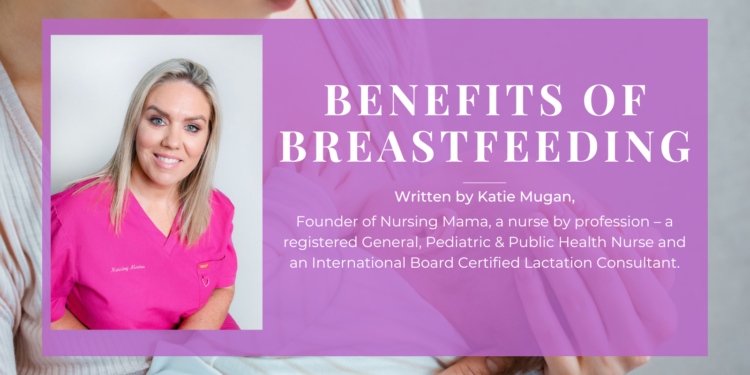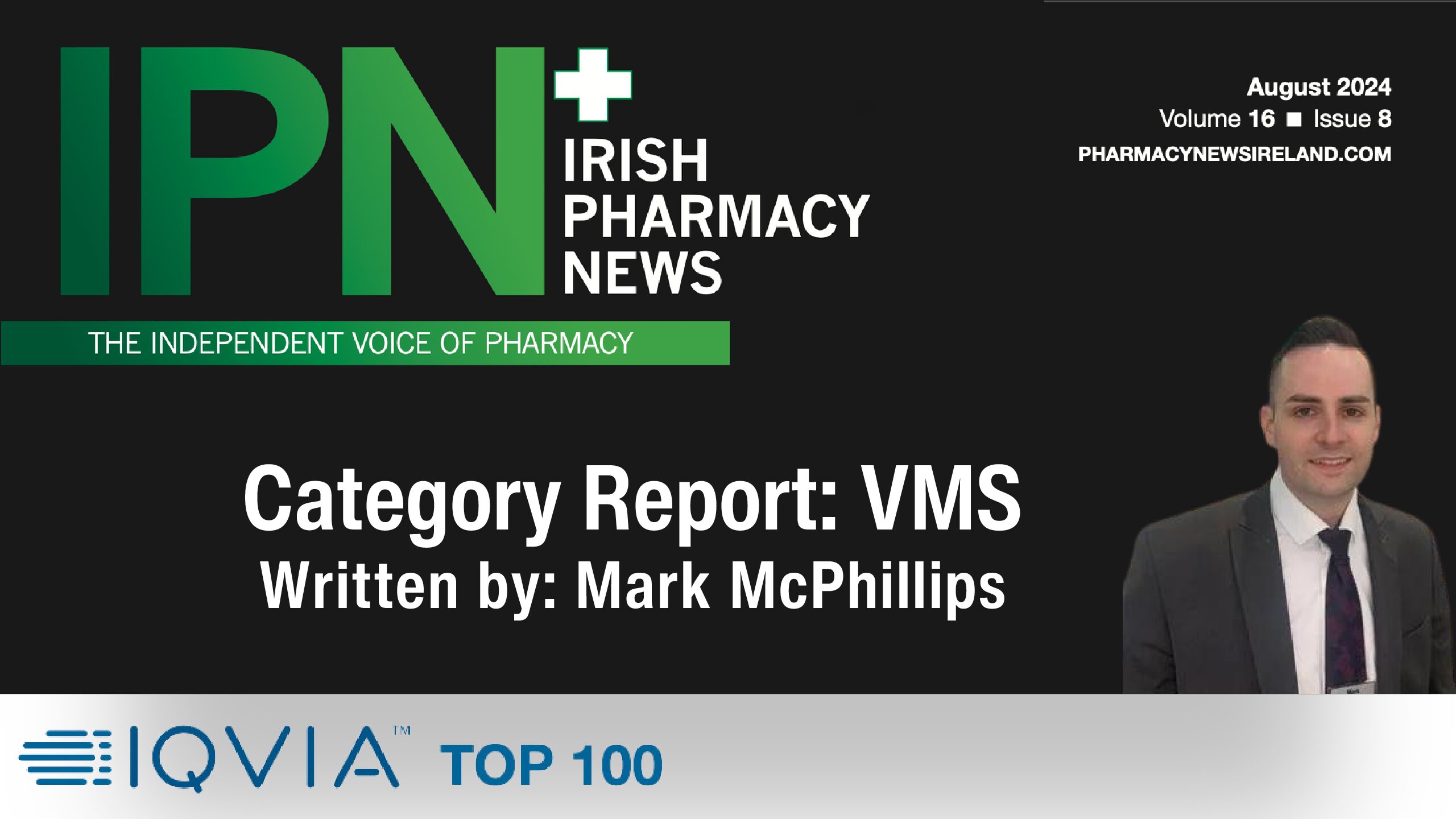Katie Mugan is the founder of Nursing Mama, a nurse by profession – a registered General, Pediatric & Public Health Nurse and an International Board Certified Lactation Consultant. Katie runs a busy private practice educating & supporting parents and health care professionals regarding breastfeeding. Katie is going to share her knowledge on supporting breastfeeding parents in the community setting
Written by Katie Mugan, Nursing Mama
It is no surprise to anyone in the medical profession to hear that Ireland has one of the lowest breastfeeding rates with only 62.3% initiating breastfeeding after birth. This is significantly lower when compared with Australia 90%, UK 81% and in the USA 79%. Our rates further drop to only 31.2% of mothers breastfeeding at 3 months.
There is no dispute that breastmilk is the optimum form of nutrition for an infant. However, it is every parents choice on how they choose to feed their baby and they should be supported also. If breastfeeding is initiated, every woman will produce breast milk specific to the needs of their baby.
It provides everything a baby requires for healthy brain, growth and development and changes continuously to meet these needs. Breastfeeding is not only a source of nutrition but has amazing health benefits to both mother & baby. Breastfeeding is shown to reduce the risk of common infant illnesses -otitis media, respiratory tract infections and gastrointestinal infections and SIDS along with long term benefits such as childhood obesity and diabetes.
For mothers, it reduces the risk of Ovarian and breast cancer, diabetes and cardiovascular disease. The benefits of breastfeeding are undeniable so why are our rates so low? Although multi factorial, one main finding is lack of support and conflicting advice from health care professionals.
Often the first port of call for any new parent for advice is their local pharmacy. Meeting a friendly, supportive face when in the midst of life with a newborn can have a huge impact on a parents experience. Community pharmacists are the most accessible healthcare provider meeting breastfeeding mothers regularly. They can have a direct impact on this patient demographic, providing support and education whilst alleviating concerns regarding medications and breastfeeding. Taking medications while breastfeeding can often lead to breastfeeding being interrupted when not necessary.
These brief interruptions can have a significant impact on a breastfeeding journey and this should not be the first recommendation unless absolutely certain this medication is not suitable for a lactating woman. There are several resources available to help pharmacists regarding medications and the lactating mother and the use of same. The Academy of Pediatrics regards LACTMED as the most reliable and up to date resource for medication use in lactating women. Another resource used widely is ‘Medications & mothers milk’ and a fantastic resource to share with parents is ‘The breastfeeding network.org.uk’. This offers a huge amount of information regarding illnesses, procedures, medications in breastfeeding mothers. Providing this resource allows parents make informed decisions in combination with their health care provider regarding their own situation.
Many parents will seek advice for over-the-counter medications so being familiar with commonly used products is beneficial.
Analgesics are one of the most commonly requested OTC medications. Ibuprofen is considered safe but best to avoid any combinations containing codeine.
Come the good weather/ hay fever season you will have an influx of mothers looking for OTC remedies. Non-sedating medications are preferential here and considered safe for short term use. During the winter season, the demand for cold & flu remedies are highest. Many of these products contain pseudoephedrine which can lead to a dip in milk supply and so are best avoided for lactating mothers.
During challenging times, the pharmacist can play a pivotal role in supporting a breastfeeding mother. Simple products and advice can stop a mother giving up breastfeeding altogether. Offering simple and basic tips on nipple care can be so beneficial to a lactating mother. Nipple discomfort is normal in the early days but constant, significant pain is not. This demonstrates an issue and if not rectified quickly may lead to nipple trauma or cessation of breastfeeding. No nipple preparation is required before baby arrives. Ensuring a good latch and attachment is priority from the offset. Nipple creams and balms can provide comfort. Mutimam compress, can feel lovely to a mom with tender nipples when applied from the fridge between feeds. Lanolin was once the balm of choice, however, more research is indicating that it can lead to higher rates of infections when used on cracked nipples. There is also a risk of allergic reactions making sore nipples worse and so many lactations consultants are steering clear. Good wound care is necessary when dealing with cracked nipples. Silver cups are becoming more popular for nipple care. Silver is a natural antimicrobial, anti-fungal, antibacterial metal and has anti inflammatory properties. However, like any product if not used correctly can lead to further wound breakdown. A moist wound environment is needed for wound healing but too moist leads to wound breakdown so ensure clients don’t leave them on too long between feeds.
Simple OTC products which can help- nipple shields, nipple evertors, breast pads, breast pumps (consider stocking Hospital grade pumps for rent). Nipple shields get a lot of bad press but they can help a mother while waiting on help. Always look for the root cause as to why they are needed is of utmost importance. Nipple evertor- I love them!! Basically, they suck out and make a nipple more pronounced. If a mother is concerned re flat or inverted nipples, these are great to pop in a hospital bag just incase. Many mothers may need to use a pump, not by choice in the early days but out of necessity. Hospital grade pumps are recommended in this situation and parents will generally rent them.
However, if you consider stocking these pumps, it allows parents to collect directly from you reducing the wait time for parents on home delivery. Having a good breastfeeding section within your pharmacy leads parents to shopping local for all breastfeeding needs rather than online. This also increases the feeling of a supportive breastfeeding pharmacy.
As medication experts dealing with the public daily, Pharmacists are in the best position to offer advice regarding breastfeeding and medication use. Having a clear understanding of some simple products that can assist breastfeeding mothers during challenging times can lead to better outcomes and help improve our national breastfeeding rates.
https://nursingmama.ie/
Read the March IPN Magazine here











